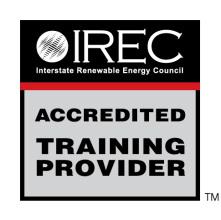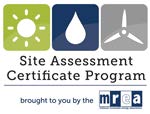Upon completion of this program, the graduate is technically prepared for entry into the areas of electrical maintenance and repair.
The Electrical Technology program prepares students to construct, install, maintain, troubleshoot, and repair electrical circuits and systems. Basic knowledge, fundamental skills and industry standards will be emphasized as students learn to work in the field of electrical technology. All degree-seeking students in Electrical Technology take the same common core of freshman-level courses; then develop skills in the specialization area of Industrial Electrical Technology. KCC offers three other Electrical Technology specialization tracks: Industrial Instrumentation and Process Control, Industrial Machinery Maintenance, and Renewable Energy Technology. Students will be required to purchase a minimum set of components and/or tools in some courses. Electrical Technology graduates are generally prepared to enter electrical technology programs at selected colleges and universities with junior status.
Job and Career info
Solar and wind technology jobs continue to grow or hold steady.
Wind - In 2014, the American wind energy industry installed 4,854 megawatts (MW), nearly five times more than the industry installed in 2013. The U.S. now has an installed wind capacity of 65,879 MW. There are more than 12,700 MW of wind currently under construction. Source: U.S. Wind Industry Fourth Quarter 2014 Market Report, American Wind Energy Association.
Solar - Over the last five years covered by the Solar Foundations National Solar Jobs Census, solar employment has grown by 86%. The 2014 Census found that the industry continues to exceed growth expectations, growing nearly 20 times faster than the overall economy. The U.S. solar industry currently employs over 174,000 Americans. Wages paid to solar workers remain competitive with similar industries. Including indirect and induced impacts, the solar industry supports approximately 700,000 U.S. jobs. The solar industry expects to add more than 36,000 solar jobs in the next year.
Source: National Solar Jobs Census 2014, The Solar Foundation, See also: National Solar Jobs Census 2015, The Solar Foundation
Job boards
American Clean Power Association
Solar Energy Industries Association
Midwest Renewable Energy Association
Illinois Solar Energy Association
More job info
KCC provides this space to connect renewable energy employers and KCC renewable energy program graduates. To share a job opening or share your career information, please contact Professor Clay Sterling,
Jacob Schultz
Jacob graduated from KCC in 2011, earning an AAS in Electrical Technology degree with a double focus in Renewable Energy Technology and Industrial Maintenance. He pursued a career in the industrial wind industry and landed a technician job with Repower USA in Goodland, Ind.
After one year Jacob transferred to GE Wind in Dwight as a troubleshooter and repair technician on 1.5MW ESS turbines. While working for GE he obtained experience in a broad range of tasks:
- Troubleshooting
- High voltage power circuits
- Low voltage control circuits
- Hydraulics
- Computer networking
- Programmable logic controls
- Large crane work for main gearbox exchanges
- Pitch motor and drive replacements with a hub crane
He also acquired experience as a lead technician managing 7-15 other technicians.
In 2013, Jacob obtained another AAS degree in Management from KCC. He gives a lot of credit to the hands-on training, quality instructors and great mentoring provided by KCC and which have helped him advance in his career.
Jacob sees renewable energy career opportunities all around him. When asked what his plans are, he responds, "I'm just going to see where the wind takes me, literally and figuratively."
Paul Foote
After graduating from KCC in 2012 with an AAS degree in Electrical Technology with a Renewable Energy focus, Paul transferred to the University of Illinois.
Here's information on Paul from 2013:
He is studying Technical System Management in U of I's College of Agricultural, Consumer and Environmental Sciences with a focus on Renewable Energy. Paul chose the University of Illinois for the world-class education and wide range of subject matter available to study. As Paul states:
"The diverse cultural experience provides great insight into the world economy and business opportunities available. Accomplishing a degree at the University of Illinois is going to be challenging and that has always motivated me. I love a challenge."
Searching for a way to express his desire to make a difference in the world, Paul took a full-time student academic position at U of I's Sustainability Facilities and Services Department. In his work there, Paul does the following:
- Assists in maintaining the Illinois Climate Action Plan Portal
- Researches, develops and initiates new sustainability projects for U of I, following up with architect, engineering and planning phases of projects
- Participates in feasibility studies and requests for proposal, tracking down time-critical information, such as efficient land use criteria, investment tax credits, production tax credits, and national & industry statistics
- Researches and verifies grant eligibility and availability for rainwater harvesting, solar installation, boiler tune-up, wind, bio mass, fuel cells, solar thermal, sewer/storm water, conservation, foundations, and sustainability projects
- Completed research, documentation collection and application process for Perry Chapman Prize, identifying contacts, application procedures, and timeframes, and corresponding with the Department of Commerce and Economic Opportunity, Illinois Clean Energy Community Foundation, and Illinois Environmental Protection Agency.
Paul sums up his job so far: "The experience has been amazing!" Paul is volunteering on the Student Sustainability Committee energy working group, developing and coordinating the inaugural University of Illinois Campus Conservation Nationals competition. He designed and is project manager for the campus electric vehicle-charging project.
Paul has been an active member of the Illini Veterans Registered Student Organization, helping raise money for the Center for Wounded Veterans in Higher Education and other local charities.
- Use safe work habits and techniques when constructing, installing, maintaining, troubleshooting, or repairing industrial machinery and systems.
- Properly use basic hand tools, small power tools, and standard measuring instruments commonly employed in the field of industrial machinery and systems.
- Successfully construct circuits, translating industry-standard drawings and documentation into their intended physical manifestations, properly performing their intended physical functions, using effective technique in the installation of industrial machinery and systems.
- Effectively troubleshoot and diagnose common electrical circuit and system faults by drawing sensible and reasonable conclusions from all available data.
- Effectively troubleshoot and diagnose common electrical circuit and system faults by accurately analyzing the appropriate drawings and documentation relative to noted trouble symptoms.
- Effectively troubleshoot and diagnose common electrical circuit and system faults by accurately gathering measured data and noting trouble symptoms; and, then correctly interpreting this data.
- Practice safety, environmental protection, workplace ethics, and leadership skills in the horticultural workplace.
- Make successful repairs of usual faults in common electrical circuits and systems.
- Effectively troubleshoot and diagnose common electrical circuit and system faults by accurately analyzing the appropriate drawings and documentation relative to noted trouble symptoms.
- Effectively troubleshoot and diagnose common electrical circuit and system faults by accurately gathering measured data and noting trouble symptoms; and, then correctly interpreting this data.
Program-specific courses
General education
A higher level mathematics course can be substituted for MATH 1103.
Specialization
Industrial Electrical
Choose one specialization. All courses must be from the same specialization.
Industrial Instrumentation and Process Control
Industrial Machinery Maintenance
Renewable Energy Technology
KCC is the only solar-PV training program in the state of Illinois and one of only three in the 18-state region that is accredited by the Interstate Renewable Energy Council (IREC).

IREC (Interstate Renewable Energy Council) is a non-profit organization accelerating the use of renewable energy and energy efficiency since 1982. IREC develops renewable energy consensus-based standards to promote best practices and provide a benchmark for effective and safe workforce training practices.

KCC is a member of the Midwest Solar Training Network, a group of technical and community colleges, non-profit organizations, universities, and industry partners who are working together to build solar training capacity in the Midwest.
Professor Sterling's certifications

IREC Certified Trainer for Solar-PV and Wind

CITCA (Communications Industry Training & Certification Academy) Certified Wind Tower and Nacelle Rescue Instructor

Site Assessment Certificate Program Midwest Renewable Energy Association/Site Assessment Certificate Program.
Learn more about this program: Electrical Engineering Technology, AAS
